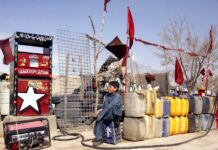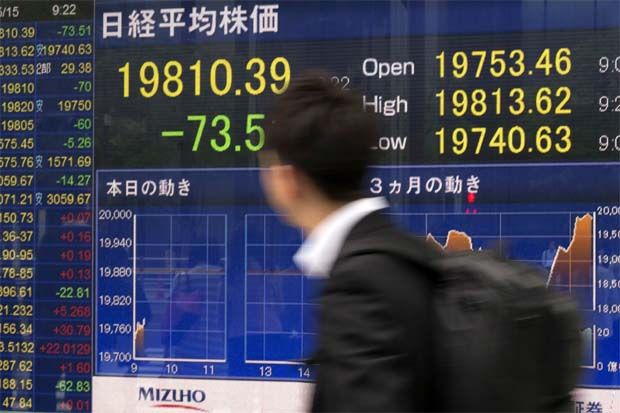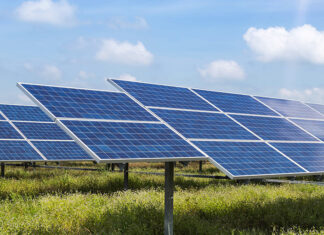BEIJING: Asian stocks were mixed Wednesday after Wall Street recorded its biggest decline since August.
KEEPING SCORE: The Shanghai Composite Index fell 0.7 percent to 3,462.29 while Tokyo’s Nikkei 225 was off 8 points at 23,281.39. Hong Kong’s Hang Seng declined 0.5 percent to 32,458.72 and Sydney’s S&P-ASX 200 gained 2.3 points to 6,025.10. Seoul’s Kospi added 0.3 percent to 2,574.51. Benchmarks in New Zealand and Jakarta advanced while other Southeast Asian markets declined.
WALL STREET: Hefty losses in health care and technology companies led U.S. stocks sharply lower. The slide erased some of the gains the market had racked up since the beginning of the year, though the market was still on track to close out January with a gain. The Standard & Poor’s 500 index fell 1.1 percent to 2,822.43 — its steepest one-day drop since Aug. 17. The Dow Jones industrial average had its biggest decline since May, losing 1.4 percent to 26,076.89. The Nasdaq slumped 0.9 percent to 7,402.48.
CHINESE MANUFACTURING: A monthly survey showed January factory activity was lower than expected. The purchasing managers’ index of the official China Federation of Logistics & Purchasing declined to 51.3 from December’s 51.6 on a 100-point scale on which numbers above 50 show activity expanding.
JAPANESE MANUFACTURING: Official data showed factory output rose to a nine-year high in December, suggesting economic growth stayed strong. Industrial output rose 2.7 percent over November — the third consecutive gain.
ENERGY: Benchmark U.S. crude fell 64 cents to $63.86 per barrel in electronic trading on the New York Mercantile Exchange. The contract plunged $1.06 on Tuesday to $64.50. Brent crude, used to price international oils, declined 64 cents to $67.88 in London. It lost 68 cents the previous session to $68.52.
CURRENCY: The dollar gained to 108.97 yen from 108.78 yen. The euro was unchanged at $1.2403.























